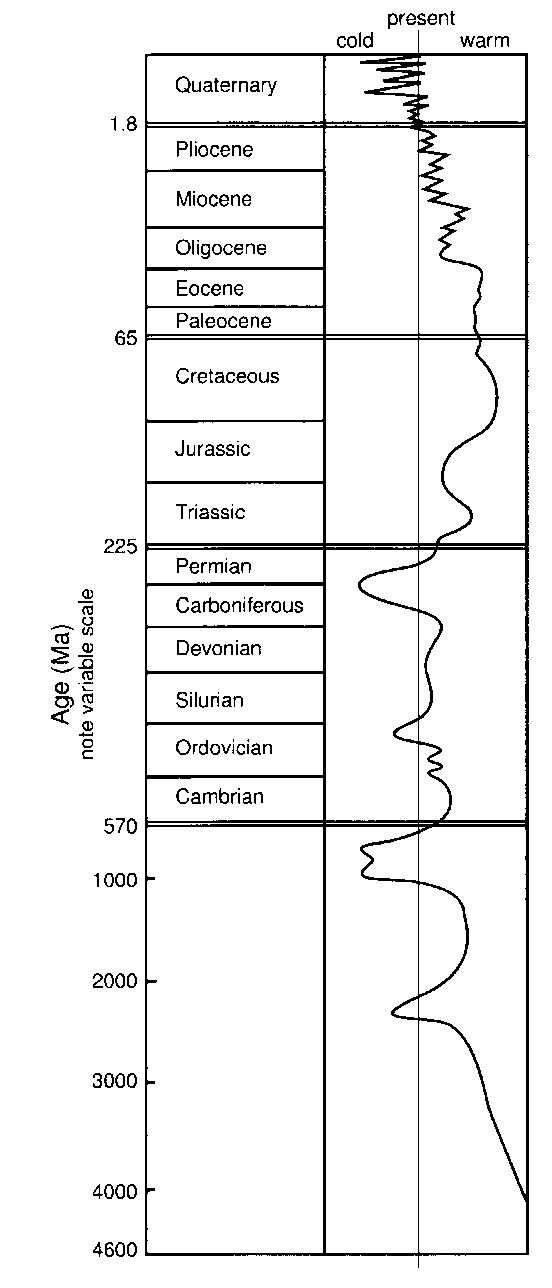Old Rocks
Diamond Member
Climate warming 'highly unusual' says new study
A major U.S. government report on Arctic climate, prepared with information from eight Canadian scientists, has concluded that the recent rapid warming of polar temperatures and shrinking of multi-year Arctic sea ice are "highly unusual compared to events from previous thousands of years."
The findings, released Friday, counter suggestions from skeptics that such recent events as the opening of the Northwest Passage and collapse of ice shelves in the Canadian Arctic are predictable phenomena that can be explained as part of a natural climate cycle rather than being driven by elevated carbon emissions from human activity.
A summary of the report -- described as "the first comprehensive analysis of the real data we have on past climate conditions in the Arctic," by U.S. Geological Survey director Mark Myers -- warns that "sustained warming of at least a few degrees" is probably enough "to cause the nearly complete, eventual disappearance of the Greenland ice sheet, which would raise sea level by several metres."
The study also sounds the alarm that "temperature change in the Arctic is happening at a greater rate than other places in the Northern Hemisphere, and this is expected to continue in the future. As a result, glacier and ice-sheet melting, sea-ice retreat, coastal erosion and sea-level rise can be expected to continue."
Ice cover in the Canadian Arctic and throughout the polar world has experienced record-setting melts in the past few years. The summer of 2007 saw polar ice cover shrink to its lowest extent in recorded history. Last summer's melt came close to matching that record, and recent research indicates that overall ice volume -- because of the continual replacement of thicker, multi-year ice with thinner new ice -- was lower in 2008 than 2007.
This past summer also saw further dramatic evidence of the unusual warming of the Canadian Arctic, including record-setting high temperatures in Iqaluit, Nunavut, rapid erosion and flooding of a glacial landscape on Baffin Island, the re-opening of the Northwest Passage, an unprecedented clearing of ice from the Beaufort Sea and the collapse of hundreds of square kilometres of ancient ice shelves on Ellesmere Island.
Research for the U.S. Congress-commissioned report was conducted by 37 scientists from the U.S., Germany, Canada, Britain and Denmark.
"The current rate of human-influenced Arctic warming is comparable to peak natural rates documented by reconstructions of past climates. However, some projections of future human-induced change exceed documented natural variability," the scientists conclude. "The past tells us that when thresholds in the climate system are crossed, climate change can be very large and very fast. We cannot rule out that human-induced climate change will trigger such events in the future."
© Copyright (c) The Vancouver Sun
A major U.S. government report on Arctic climate, prepared with information from eight Canadian scientists, has concluded that the recent rapid warming of polar temperatures and shrinking of multi-year Arctic sea ice are "highly unusual compared to events from previous thousands of years."
The findings, released Friday, counter suggestions from skeptics that such recent events as the opening of the Northwest Passage and collapse of ice shelves in the Canadian Arctic are predictable phenomena that can be explained as part of a natural climate cycle rather than being driven by elevated carbon emissions from human activity.
A summary of the report -- described as "the first comprehensive analysis of the real data we have on past climate conditions in the Arctic," by U.S. Geological Survey director Mark Myers -- warns that "sustained warming of at least a few degrees" is probably enough "to cause the nearly complete, eventual disappearance of the Greenland ice sheet, which would raise sea level by several metres."
The study also sounds the alarm that "temperature change in the Arctic is happening at a greater rate than other places in the Northern Hemisphere, and this is expected to continue in the future. As a result, glacier and ice-sheet melting, sea-ice retreat, coastal erosion and sea-level rise can be expected to continue."
Ice cover in the Canadian Arctic and throughout the polar world has experienced record-setting melts in the past few years. The summer of 2007 saw polar ice cover shrink to its lowest extent in recorded history. Last summer's melt came close to matching that record, and recent research indicates that overall ice volume -- because of the continual replacement of thicker, multi-year ice with thinner new ice -- was lower in 2008 than 2007.
This past summer also saw further dramatic evidence of the unusual warming of the Canadian Arctic, including record-setting high temperatures in Iqaluit, Nunavut, rapid erosion and flooding of a glacial landscape on Baffin Island, the re-opening of the Northwest Passage, an unprecedented clearing of ice from the Beaufort Sea and the collapse of hundreds of square kilometres of ancient ice shelves on Ellesmere Island.
Research for the U.S. Congress-commissioned report was conducted by 37 scientists from the U.S., Germany, Canada, Britain and Denmark.
"The current rate of human-influenced Arctic warming is comparable to peak natural rates documented by reconstructions of past climates. However, some projections of future human-induced change exceed documented natural variability," the scientists conclude. "The past tells us that when thresholds in the climate system are crossed, climate change can be very large and very fast. We cannot rule out that human-induced climate change will trigger such events in the future."
© Copyright (c) The Vancouver Sun


